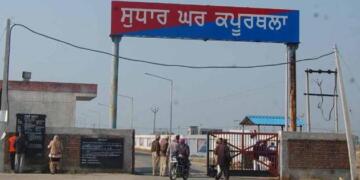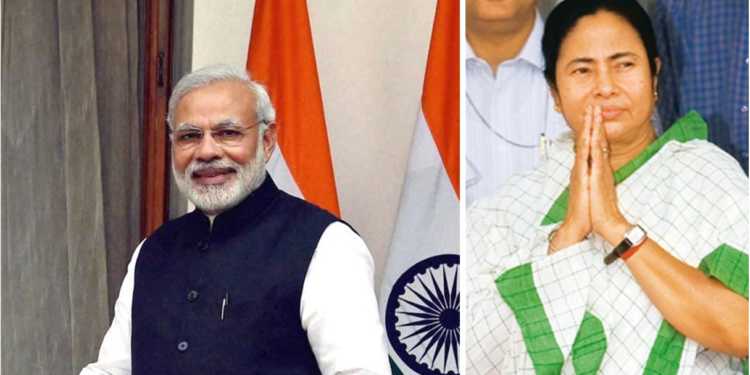Earlier this week, in an unexpected change of tack, West Bengal chief minister Mamata Banerjee declared that she was in favor of prime minister Modi and that she did not blame him for the problems the opposition parties faced in India. She lay the blame squarely on BJP president Amit Shah.
A few months earlier, Delhi chief minister Arvind Kejriwal who was one of the prime minister’s fiercest critics, mysteriously mellowed down. What has stopped these leaders from taking on the prime minister directly? This cannot be attributed to the fact that many of the central government’s agencies are investigating both Mamata and Kejriwal’s lieutenants, because if they considered the investigations to be an existential threat, they would have spared Amit Shah and the BJP of criticism as well. It can neither be attributed to a realization that they’re too insignificant to take on the prime minister, because their ambitions cloud the prospect of such realizations. And it can certainly not be attributed to the bonhomie one witnesses every time Mamata meets the prime minister, because administrative professionalism and politics are different things.
Knowing Mamata, this is a calculative move. Today, the Modi-Shah duo cannot be perceived in a non-hyphenated way, and Mamata is too consummate a politician to make such an elementary blunder. Ever since the Gujarati duo took over the party, they have brought immense strategic depth to the table. One witnesses how Amit Shah has gone about ruthlessly winning election after election, even taking home states that the party lost, and expanding the organization at a maddening pace. But this is only half the story.
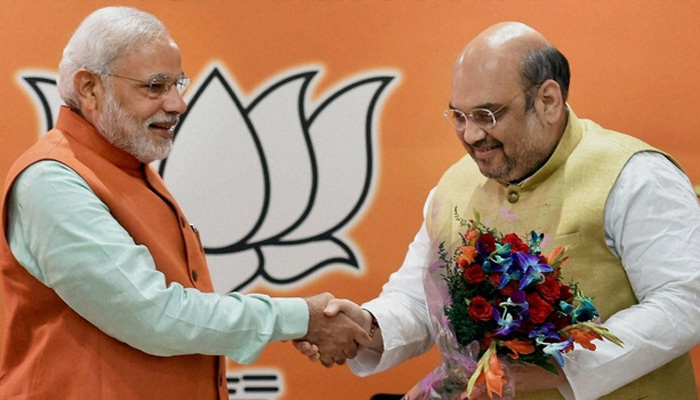
The prime minister’s side of the story is the other half. Among the things Narendra Modi excels at, is setting the narrative. Ever since he took over as prime minister, he hasn’t conducted a single press-conference, and has given only a handful of interviews. Making several speeches every week with the best oratory skills in the game, and using social media effectively, he has seized control of the narrative. He doesn’t respond to what the media (mainstream, alternate and social) says. He has turned the tables. He makes them respond to what he says. He is the prime minister, and what he says makes the news irrespective of whether he is responding to the media or forwarding his own agenda. In a sense, he holds the media to ransom.
This has allowed the prime minister to focus relentlessly on certain pet themes. Whether it is his crackdown on corruption, his staunch support for the armed forces, his drive to spread hygiene, his will to uplift the poor or his resolve to instill pride among Indians, these themes now define the prime minister in a certain sense. What gives credibility to the prime minister projecting himself in such a light, is that his genuine efforts in these domains are palpable.
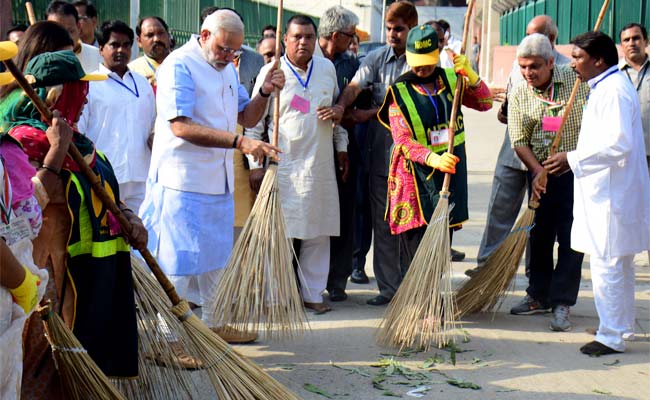
Every politician talks about eradicating corruption. Delhi chief minister Arvind Kejriwal was considered the primary anti-corruption crusader in the country for a long time. But post demonetization, irrespective of its positives and negatives, the prime minister has effectively stolen that crown. Every politician heaps laurels on the armed forces, but post OROP and instances such as the surgical strike And Doklam Courage, which indicate that they are being given a free hand at last, the prime minister has successfully championed that cause. The prime minister’s drive to spread hygiene is unique from a political point of view, but it makes him the sole voice dealing with an issue that afflicts most Indians. Through several schemes such as providing electricity in the villages, gas cylinders and financial inclusion for the poor and homes for the homeless, a huge chunk of the population duped by consecutive generations of frauds now has a messiah of sorts.
The name Narendra Modi now signifies the embodiment of anti-corruption, hygiene, nationalism, poverty alleviation and other such positives to most Indians. What the prime minister has successfully achieved is the narrowing down of the opposition’s scope of attack against him. If the opposition wants to attack the prime minister today, gau-raksha or lynchings don’t strike a chord with the people because they are outside the purview of public discourse. The entire opposition, both politicians and media, are between a rock and a hard place. If they attack outside the new framework, they lose relevance. If they attack within, they stand exposed.
They say that in cricket, some batsmen are so talented that they manipulate the bowler to bowl exactly where they want him to. Prime minister Modi is turning out to be that kind of batsman in the game of politics. If the Congress Party wants to remain relevant in the future, they are forced to attack him on the surgical strike, on demonetization and on his foreign trips. These are highly popular decisions. In their attempts to remain relevant, parties like the Congress are effectively digging their own graves. For the opposition, it’s a tough choice between total irrelevance or a complete downfall.
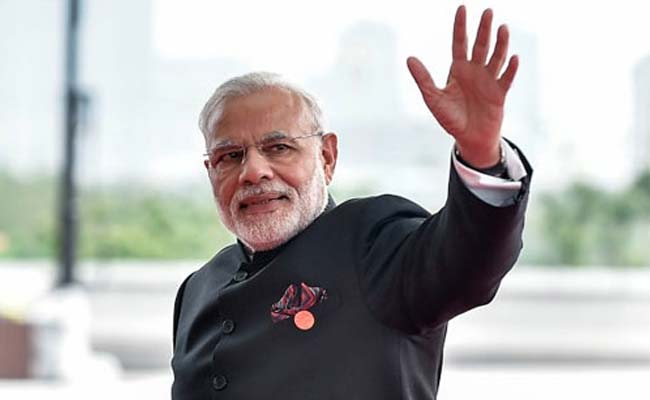
Some like the Left parties and the BSP have chosen to fade away in oblivion. Some like the Congress Party have chosen to be annihilated. And some like the Samajwadi Party have chosen a combination of both. But the pragmatists within the opposition, Mamata and Kejriwal, are beginning to learn from their mistakes and undo the damage.





